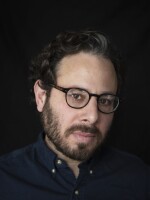MARY LOUISE KELLY, HOST:
Police in New York City fatally shot a black man after mistaking a metal pipe for a gun. Callers to 911 said the man was waving a gun at people on the street, but neighborhood residents say it was well-known Saheed Vassell suffered from mental illness. And as NPR's Joel Rose reports, they are questioning why police were so quick to shoot.
JOEL ROSE, BYLINE: Saheed Vassell died where he spent most of his life - on Utica Avenue in Crown Heights, Brooklyn, between the apartment where he lived with his family and the barbershop where he liked to hang out.
DAVID BAILEY: And then I said, boy, we know this man for, like - ever since. You know, here comes - he'll hang out in the barbershop. You know what I mean?
ROSE: David Bailey (ph) says Vassell's struggles with mental illness were no secret.
BAILEY: It's visible. You could see it. Listen. Ray Charles could see that man was crazy.
ROSE: But also, he says, harmless, and local police knew that, too, according to neighbors Angie Lewis (ph) and Kirk McLeod (ph).
ANGIE LEWIS: When they first said it, I couldn't believe it was him. He's not a troublemaker.
KIRK MCLEOD: This young man wouldn't hurt a fly.
ROSE: Police painted a different picture after the shooting.
(SOUNDBITE OF ARCHIVED RECORDING)
TERENCE MONAHAN: This is a snapshot of one of the locations where we see the male...
ROSE: On Wednesday afternoon, the NYPD says three different 911 callers reported a man pointing a silver object at several people on the street as if it were a gun. It turned out to be a piece of metal pipe with a shower head, but it's not easy to see that in the still photos or the surveillance videos that police have released. When officers showed up at the scene, police say Vassell pointed the object at them. Here's NYPD Chief of Department Terence Monahan.
(SOUNDBITE OF ARCHIVED RECORDING)
MONAHAN: The suspect then took a two-handed shooting stance and pointed an object at the approaching officers, two of whom were in uniform.
ROSE: Monahan says four officers shot Vassell. The medical examiner says he was struck a total of 9 times. Monahan says three of those officers were part of a special unit that's trained to respond to terrorism and other emergencies, and Monahan says these officers had no way of knowing about Vassell's mental health problems.
(SOUNDBITE OF ARCHIVED RECORDING)
MONAHAN: This was not an emotionally disturbed call. This was a call of a man pointing what 911 callers and people felt was a gun at people on the street. When we encounter him, he turns with what appears to be a gun at the officers.
ROSE: The NYPD says it's conducting a full investigation. So is the state's attorney general. The shooting happened on the 50th anniversary of Martin Luther King Junior's assassination, and it comes just a few weeks after a black man in Sacramento was shot and killed by police who thought he had a gun. That man was holding a cellphone. New York Mayor Bill de Blasio called the shooting in Brooklyn a tragedy on more than one level.
(SOUNDBITE OF ARCHIVED RECORDING)
BILL DE BLASIO: This is someone who had a profound mental health problem, was not on medication, hadn't been on medication. A man like this, if he had gotten the help he needed, hopefully would never have been in a situation where such a horrible, painful tragedy would have occurred.
ROSE: But Saheed Vassell's neighbors in Brooklyn seem more concerned about why the NYPD was so quick to pull the trigger. Angie Lewis has lived in the neighborhood for three decades.
LEWIS: That don't look like no gun. When you try to see a gun, you know what a damn gun is. You work with it. Don't get trigger-happy.
ROSE: What are you thinking right now about the NYPD?
LEWIS: I don't know. They need to get it together. Stop acting, responding before you find out more.
ROSE: Saheed Vassell leaves behind a teenage son. He was 34 years old. Joel Rose, NPR News, New York. Transcript provided by NPR, Copyright NPR.
NPR transcripts are created on a rush deadline by an NPR contractor. This text may not be in its final form and may be updated or revised in the future. Accuracy and availability may vary. The authoritative record of NPR’s programming is the audio record.



